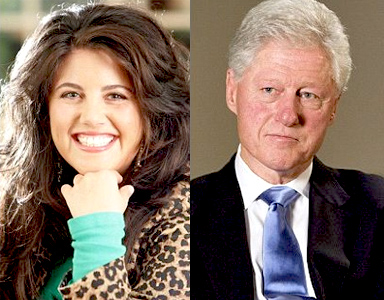Washington, May 7: Former White House intern Monica Lewinsky has broken her silence on her 1990s affair with then US President Bill Clinton, saying he took advantage of her even though it was a “consensual relationship”.
 “I, myself, deeply regret what happened between me and President Clinton. Let me say it again: I. Myself. Deeply. Regret. What. Happened,” Ms. Lewinsky said in an exclusive article she wrote for Vanity Fair magazine.
“I, myself, deeply regret what happened between me and President Clinton. Let me say it again: I. Myself. Deeply. Regret. What. Happened,” Ms. Lewinsky said in an exclusive article she wrote for Vanity Fair magazine.
In the article, Ms. Lewinsky said it is time to stop “tiptoeing around my past and other people's futures. I am determined to have a different ending to my story.”
“I've decided, finally, to stick my head above the parapet so that I can take back my narrative and give a purpose to my past. What this will cost me, I will soon find out,” she said.
Maintaining that her affair with Mr. Clinton was one between two consenting adults, Ms. Lewinsky wrote that it was the public humiliation she suffered in the wake of the scandal that permanently altered the direction of her life, according to Vanity Fair.
“Sure, my boss took advantage of me, but I will always remain firm on this point: it was a consensual relationship,” she said in the article.
“Any ‘abuse' came in the aftermath, when I was made a scapegoat in order to protect his powerful position...The Clinton administration, the special prosecutor's minions, the political operatives on both sides of the aisle, and the media were able to brand me. And that brand stuck, in part because it was imbued with power,” she wrote according to the excerpts.
“The buzz in some circles has been that the Clintons must have paid me off; why else would I have refrained from speaking out? I can assure you that nothing could be further from the truth,” Ms. Lewinsky, said.
Ms. Lewinsky said in the article that when the news of her affair with Mr. Clinton broke in 1998, not only was she arguably the most humiliated person in the world, but “thanks to the Drudge Report, I was also possibly the first person whose global humiliation was driven by the Internet.”
Her current goal, she said, “Is to get involved with efforts on behalf of victims of online humiliation and harassment and to start speaking on this topic in public forums.”





Comments
Add new comment